Health Insurance for Unemployed Individuals: How to Stay Covered During Job Loss
Losing a job can be extremely stressful. One of the biggest and most common concerns that arises with a lost job is health insurance coverage. A lost job can lead to a lapse in coverage but it does not have to.
Below are the various healthcare insurance options available to unemployed individuals. Continue reading to make an informed choice about your healthcare coverage during this transition period.
Understanding the Importance of Health Insurance While Unemployed
Maintaining coverage while unemployed protects both your long-term health and your financial stability. Unexpected illnesses or injuries can lead to a substantial pile of medical bills, which can be difficult to manage without a steady income. Continuous coverage ensures access to preventative care, necessary treatments, and prescription medications, safeguarding your well-being and financial security.
Common Health Insurance Options for the Unemployed
There are several options available for unemployed health insurance coverage. The four most common are detailed below:
COBRA Coverage
The Consolidated Omnibus Budget Reconciliation Act, commonly known as COBRA, provides coverage of group healthcare to individuals who have lost employment. Under COBRA, the federal law allows you to continue employer-sponsored health insurance after employment has been terminated. COBRA coverage can last up to 36 months after employment ends.
An advantage of continuing health insurance under COBRA is that it allows uninterrupted access to healthcare providers and benefits. This is especially helpful if beneficiaries are undergoing treatment at the time of lost employment.
A downfall of COBRA is that it tends to be expensive because beneficiaries usually have to pay the entire monthly premium. If an employer contributed to less than half of the premiums, beneficiaries may qualify for tax credit. The U.S. Department of Labor outlines the details of COBRA here.
Marketplace Health Plans (Healthcare.gov)
Thanks to the Affordable Care Act (ACA), the Health Insurance Marketplace offers an online platform to find affordable healthcare options. The Marketplace offers a plethora of health insurance options ranging in price and coverage categories from Bronze to Platinum. Specifications of these categories can be found here on the U.S. Centers for Medicare & Medicaid Services’ webpage.
The Marketplace offers a Special Enrollment Period (SEP) for those recently unemployed. The traditional enrollment period is from November 1 to January 15. Qualifying individuals can enroll outside this timeframe. The SEP for someone recently unemployed is 60 days after losing employment-based coverage.
In addition to the varying options and the SEP, Marketplace offers subsidies for individuals and families to help cover the cost of unemployed healthcare insurance. These subsidies are based on Federal Poverty Level (FPL) guidelines, as well as household size and state health costs. To see if you qualify for healthcare insurance subsidies follow this link to Heathcare.gov.
Medicaid and State-Based Programs
Medicaid offers healthcare coverage for qualifying individuals at little to no cost. Coverage can include hospital stays, doctor visits, and even preventive care. If you are recently unemployed and qualify, Medicaid may be the best option for you.
Medicaid qualification varies by state, although eligibility is generally based on the following criteria: age, income level, household size, and presence of pregnancy or a disability. Each state’s eligibility requirements can be found here. Visit Informed Choice’s blog for Tips on the Medicaid Enrollment Process.
Spouse or Parent’s Insurance Plan
Some individuals may be eligible as a dependent under a spouse's or parent's insurance plan.
If you are recently unemployed and under the age of 26, you may be able to join your parent’s health insurance plan as a dependent. If married, individuals usually can join the spouse’s plan. Refer to the particular policy and insurance provider for details on the enrollment process and timeframe.
Short-Term Health Insurance Plans
Short-term health insurance plans typically cover unexpected medical expenses like emergency room visits, hospital stays, and some doctor appointments. However, they often do not cover pre-existing conditions, preventative care, or prescription drugs. Benefits can vary widely depending on the provider and the specific plan.
If recently unemployed, short-term plans can be a good fit for individuals who are generally healthy and just need basic, temporary protection. They can also be a more affordable option for those who missed the enrollment period under the Affordable Care Act.
While short-term health insurance plans for unemployed individuals can be a good fit for bridging gaps in coverage, they are not a substitute for comprehensive health insurance. Because these plans offer limited coverage, they are not recommended for individuals with ongoing health needs or those who want more comprehensive benefits.
Tips for Choosing the Right Plan
Evaluate at minimum the following in each of the unemployed healthcare insurance options:
Premiums
Deductibles
Provider networks
Doctor and hospital visit coverage
Drug prescriptions
When selecting a health insurance plan during a job transition, consider you and your family’s healthcare needs and budget.
How Informed Choice Can Help You Stay Covered with the Right Health Insurance Plan
As you transition from job to job, evaluating the various unemployed healthcare insurance options can be overwhelming. For guidance through the various options available to you connect with an expert Informed Choice.

